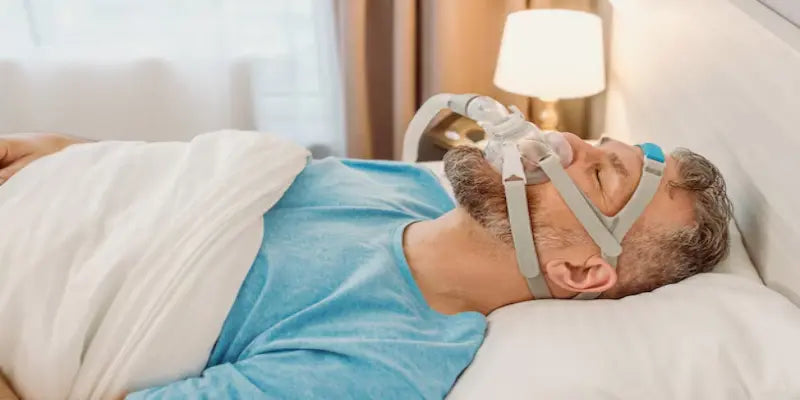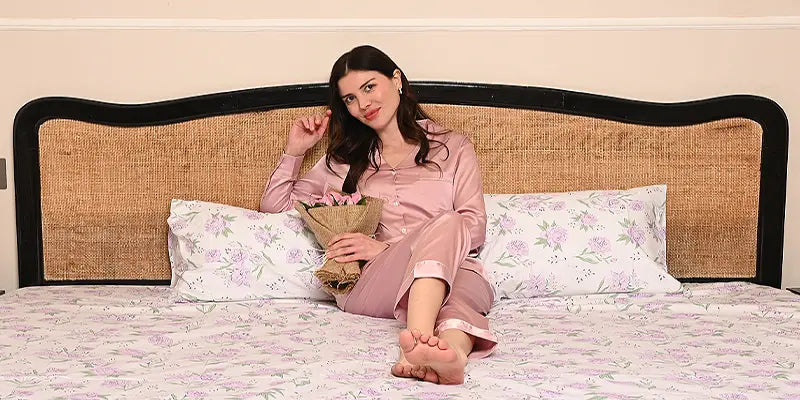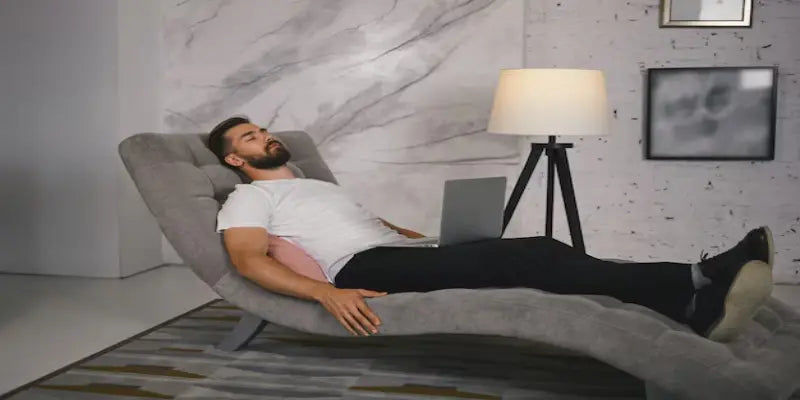
How Weight Affects Sleep Apnea
Sleep apnea is a common condition where your breathing repeatedly stops and starts while you sleep. One of the key factors that can influence sleep apnea is body weight. In fact, research shows that weight and sleep apnea are closely linked. But how exactly does weight affect sleep apnea, and can losing weight help improve the condition? In this blog, we’ll explore what sleep apnea is, how weight affects sleep apnea, can losing weight help sleep apnea and how much weight loss is needed to see improvements in sleep apnea if you are overweight.
What is Sleep Apnea?
Sleep apnea occurs when the muscles in the throat relax too much during sleep, causing a temporary blockage of the airway. This interruption in breathing can last for several seconds to minutes and may occur multiple times throughout the night. The most common type is obstructive sleep apnea (OSA), which is caused by physical obstruction of the airway, often due to excess tissue or fat around the throat area.
If you experience loud snoring, choking or gasping during sleep, feeling excessively tired during the day or difficulty concentrating, all these are the symptoms of sleep apnea. It is very important to treat apnea as in the long term, it can lead to serious health issues such as high blood pressure, heart disease, and diabetes.
How Weight Affects Sleep Apnea
Being overweight or obese is one of the leading risk factors for sleep apnea. Excess fat around the neck and throat area can put pressure on the airway, making it more likely to collapse while you sleep. This increased pressure can obstruct the airflow, leading to more frequent breathing pauses and disrupted sleep.
In fact, studies have shown that people with higher body mass index (BMI) are more likely to develop sleep apnea or experience more severe symptoms. The more excess weight you carry, the greater the chances that your airway will be obstructed during sleep. Additionally, fat deposits around the chest can restrict lung function, making it harder to breathe properly at night.
Sleep Apnea and Weight Loss: Can Losing Weight Help?
Now that we understand how weight can affect sleep apnea, the next logical question is: Can losing weight help sleep apnea?
The answer is yes — losing weight can have a significant positive impact on sleep apnea symptoms. Even a modest weight loss can help reduce the severity of the condition.
Here's how:
Reduced Fat Around the Neck and Throat
Losing weight can reduce the amount of fatty tissue around the neck, which is one of the key contributors to airway obstruction in obstructive sleep apnea. As the fat around the throat decreases, the airway becomes less likely to collapse during sleep, improving overall airflow and reducing snoring and breathing pauses.
Improved Lung Function
Weight loss can also help improve lung function and reduce the pressure on the chest, making it easier to breathe at night. This can help improve the quality of sleep and reduce daytime fatigue.
Decreased Inflammation
Obesity is associated with chronic inflammation, which can worsen sleep apnea. Losing weight can reduce inflammation in the body, potentially leading to less severe sleep apnea symptoms.
Better Sleep Quality
When you lose weight and reduce the severity of your sleep apnea, you may experience better, more restorative sleep. This can help reduce daytime drowsiness and improve energy levels, concentration, and overall well-being.
How Much Weight Loss is Needed?
The amount of weight loss needed to see improvements in sleep apnea symptoms can vary from person to person. However, studies suggest that even losing 10-20% of your body weight can lead to noticeable improvements in sleep apnea. For example, if you weigh 100 kg, losing 15-25 kg could help reduce the frequency of apnea events and improve the quality of your sleep.
It’s important to note that weight loss alone may not cure sleep apnea, especially in individuals with more severe cases. However, it can be an effective part of a comprehensive treatment plan that may include lifestyle changes, using a CPAP machine (Continuous Positive Airway Pressure), or other medical treatments.
Other Benefits of Weight Loss for Sleep Apnea
Besides improving sleep apnea symptoms in women, losing weight offers several other health benefits that can indirectly improve your sleep and overall quality of life.
These include:
- Lowering your risk of high blood pressure, heart disease, and diabetes
- Reducing the strain on your joints and muscles
- Improving your energy levels and mood
Tips for Losing Weight and Managing Sleep Apnea
If you’re considering weight loss to help manage your sleep apnea, here are some tips to get started:
- Eat a balanced, nutritious diet: Try to eat whole foods like fruits, vegetables, lean proteins, and whole grains as much as possible. Avoid processed foods and sugary snacks can help you manage your weight more effectively.
- Exercise regularly: Aim for at least 150 minutes of moderate-intensity aerobic activity each week. Walking, swimming, and cycling are great options.
- Prioritize sleep hygiene: In addition to losing weight, creating a healthy sleep environment is crucial. Stick to a regular sleep schedule, limit screen time before bed, and make your bedroom cool, dark, and quiet.
- Consult your doctor: Before starting any weight loss program, it’s important to speak with your doctor, especially if you have sleep apnea. They can help guide you on the best approach to losing weight and managing your condition.
Conclusion
Weight plays a significant role in the severity of sleep apnea, with excess weight contributing to airway obstruction during sleep. Losing weight can help reduce the fat around the neck and throat, improving airflow and reducing the severity of sleep apnea. While weight loss alone may not cure sleep apnea, it can be an effective way to reduce symptoms and improve your overall quality of sleep. If you have sleep apnea, speak to your doctor about how weight loss can be a part of your treatment sleep apnea plan for better sleep and better health.








